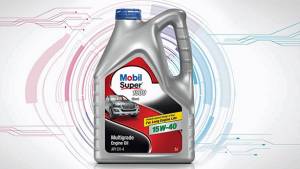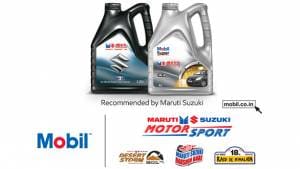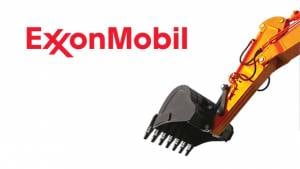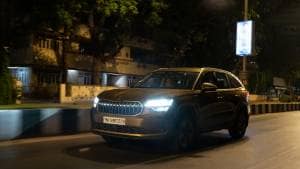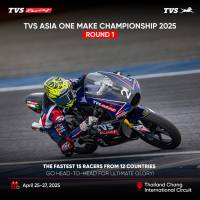Interview: Pablo Conrad, global brand manager, ExxonMobil talks about challenges
The Indian automotive sector is growing at a steady pace and the ancillary market has a sizable contribution too - both, in terms of revenue and the amount of jobs it creates. The latter also benefits from the immense talent pool that India has to offer. It is no wonder then that plenty of known and new automotive brands have been setting up shop and investments in India. ExxonMobil for one, seems to have some serious plans for its operations in India as it believes that ours in one of the biggest automotive lubricant market in the world. Better known in the market for the Mobil 1 range of oils, the Texas-based petroleum giant is close to launching a new motor oil for the Indian market. ExxonMobil has also been busy in setting up a technical and business support service centre in Bangalore.
We recently met Pablo Conrad, who is the global brand manager for ExxonMobil's passenger vehicle lubricant business. Pablo spoke to OVERDRIVE about the ExxonMobil's plans for India, its partnerships with various carmakers, the brand's involvement with Indian motorsports and the consumer-oriented initiatives that the company plans to undertake. Read on to know more.
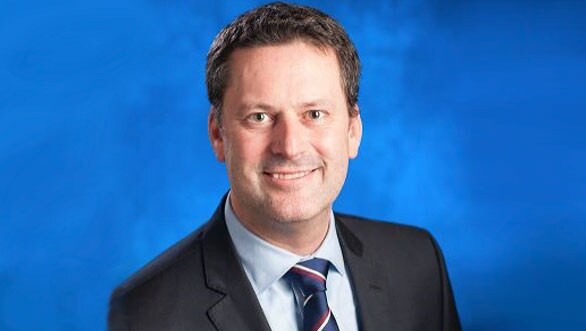
OVERDRIVE: Which carmakers do you have a tie-up with in India and what are the unique prospects that your brand offers to them over the competition?
Pablo Conrad: India is a very important market for us. We've put in a lot of focus in this market. we want to grow in this market and we have identified opportunities for us to target at the growth in this market. We have great relationships with OEMs, all over the world - like the global arrangements we have with Mercedes-Benz or Porsche (for example). In India in particular, we have a great approach and a great partnership with Maruti Suzuki. We have also established an agreement with Tata, a very important name in this market (for their presence) in different sectors like commercial vehicles and passenger vehicles as well. But, those are kind of the key OEMs that we enjoy our partnerships with and have growth opportunities, here in India.
OVERDRIVE: Can you also tell us about existing challenges and current priorities?
Pablo Conrad: The Indian lubricants market is one the biggest in the world. So we're really keen to growing our position today to a more significant participation in this market. We're keen to bring in our expertise, product offerings, technology and understanding of market needs. We have established a solid network of (fifty) distributors covering different parts of the country. We invest a lot of resources and money in training our distributors and sales representatives on practices, programmes and offers to succeed in the marketplace. We believe we have a great understanding of the market and we're ready to grow to even stronger positions in this market.
OVERDRIVE: Going forward, which sector do you see as the key contributor towards your revenue - four-wheelers or two-wheelers?
Pablo Conrad: As you know, we are participating in both segments - in the two wheelers and in four-wheelers. For both sectors, we have appropriate offers and we believe that the consumers would enjoy buying our Mobil brand into those sectors. We have launched an offer into the motorcycle segment recently and we are enhancing and expanding that offer this year with Mobil Super 4T 20W40. That's a product oriented to the heart of the market. The majority of the two wheelers in India need and demand that kind of a viscosity and quality level. So, we have growth plans for that sector as well.
At the same time, our expertise in the car sector will imply that we want to continue to grow in that area as well. So not only are we planning launches of our products in the two-wheeler sector but also in the four-wheeler sector as well. And indeed we are really excited to share with you today that next month (June), we will launch a new version of Mobil 1 for retail in India. It's the Mobil 1 5W30 ESP formula and we believe it's going to be a success in retail. We believe it is applicable to all of the modern engines that are in this market. We believe it is a great combination of giving superb performance to the engines, good control and keeping engines running like new, from the first day, until the end of the life cycle of the cars.
OVERDRIVE: Speaking of the retail segment, it is growing phenomenally and offering new opportunities. At the same time, for a premium brand like yours, consumer awareness about the brand and justifying costs is very important too. What are your plans in this regard?
Pablo Conrad: That is an excellent question as well because as you know the biggest challenge in every launch is our communication. It's not only about having the best possible product for a certain market (like we believe we have now in India), but it is also about communicating to the consumers and explaining the benefits and differences. It is also about understanding what their needs are and giving them exactly what they need for a particular application.
So we have an integrated campaign that combines multiple channels. At the same time, we are educating our distributors and having them spread the message to the retailers, who in the end are the ones educating the consumers on their needs. So it's kind of a cascading effect, one clear communication, one clarity in the message, but in the end try to understand what the consumer needs and help them make the best choice for their cars.
OVERDRIVE: Globally, ExxonMobil is a very well known brand. It's also one of the largest companies in the world and we sure you might have done some market studies in India. Based on that, what is the customer perception right now about the brand and how difficult is it for you to make the Indian consumer understand what your company stands for and how sophisticated they are in terms of the technology and the expertise of their products?
Pablo Conrad: Very interesting and nice that you mention this, because ExxonMobil and Mobil are globally known brands. We have a long tradition of innovation in lubrication and particularly in the automotive sector as well. We've been present since the early automobiles until the last racing environment. We've flown with the Wright brothers in their first flight and lately in the space station as well. So we have a wide arrangement of application and lubrication needs for every kind of solution. In the automobile industry in particular, we are very strong in motorsports as well. We've been in the racing industry for more than 40 years and recently, with our partnership with McLaren in Formula 1, we have used it as a great testing ground for our own lubrication technologies. We then leverage that platform as a great way of communication as well. So, we leverage on different ways to communicate our brand proposition, which is really strong globally, into the Indian market. Which as i said before, is a really important market for us and is a market where we're committed to grow significantly.
OVERDRIVE: ExxonMobil has quite a rich heritage in motorsport. Can you tell us something about your partnership with Maruti Suzuki motorsport?
Pablo Conrad: It's really exciting, what we're doing with Maruti Suzuki in the tours of the Himalayas (Raid-de-Himalaya) and with the Desert Storm operations. So, in cold weather, in hot weather, we tried to test our lubrication technology with them and it's been a great partnership. We believe it's engaging, with the overall audience and the consumers because they can relate their driving habits and driving patterns to either hot or colder environment that's closer to home, that's closer to what's happening in India. Elsewhere in the world, we are also have a really strong presence in the NASCAR category in North America, which in the end is another testing ground for our technology with many teams as well. So, between Formula 1 in Europe and globally, NASCAR in North America, and Maruti Suzuki in India, we believe we have different testing grounds or platforms to engage with consumers in a very effective way and the same time, test our technology because it's going to be deployed with consumer applications.
OVERDRIVE: Crude oil prices have been falling since 2015, how does it affect your business?
Pablo Conrad: The crude oil prices have an impact, of course, across the value chain of the energy sector and we have been trained for over many decades of business exposure on how to maximise our long term value proposition to our consumers regardless of the short-term cycle. So, it's one more data that we consider in our investment plans, is one more data point that may affect or may help us to take advantage of our position on the global strength to understand what our portfolio should be. But again, let me emphasize that our basis model is long term. For example, now, in India, we have a strong commitment to invest in this market and to growth our position in this market, that would happen regardless of the crude oil price.
OVERDRIVE: Can you also tell us a bit about your Rs 2,500-3,000 crore investment in setting up the technical support centre in Bangalore?
Pablo Conrad: We found a great pool of talents in this country - in Bangalore, in particular. We established a support centre that is providing support to many of the businesses outside India. In the western hemisphere, in Europe, Africa, Middle-East and in Asia Pacific in particular, we are moving more and more activities that can be consolidated in India because again, we have access to a great pool of talents in this country.
OVERDRIVE: Electric power is fast becoming the viable alternative fuel for automobiles. How does it affect your automobile business?
Pablo Conrad: Interesting question! As you know, every year we publish a report that is called the 'Outlook for Energy' and in that report, we also do validation of trends, including the electrification of automobiles. If you read the last report, that was published a few months ago, you will see that despite a significant rise in the growth of those (electric) cars and technologies, the growth in conventional engines is quite sizable too. So, we believe that over the next two to three decades, our products are still going to be needed in markets that demand more and more transportation like India and other developing markets in the world. So, the core market demand will still be in that area, according to our studies. Any how, we are engaged with OEMs, understanding their lubrication needs and we are working with many of those companies that are producing hybrids or electric cars, trying to understand what their needs are and how we can support them better in gearboxes or in their transmission systems because the engines may not require lubrication from an engine oil but other applications will still need it. And that implies partnerships that I mentioned before with OEMs globally and in India as well, the relationship of trust, the relationship of mutual investment towards the bright future for our societies, for our employees and our shareholders.
